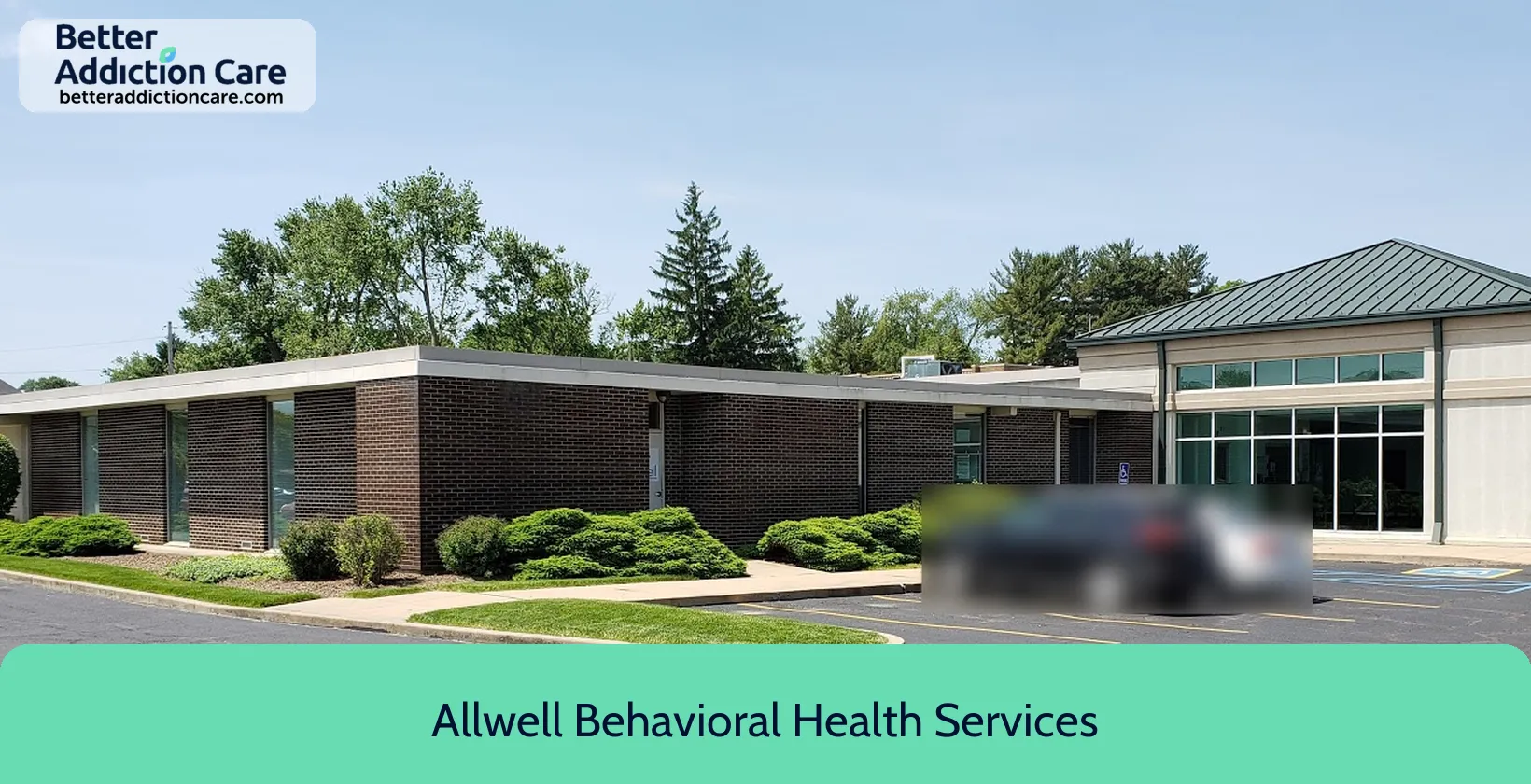Allwell Behavioral Health Services
Overview
Allwell Behavioral Health Services is a mental health treatment center for people seeking treatment near Muskingum County. As part of their treatment modalities for recovery, Allwell Behavioral Health Services provides couples/family therapy, group counseling, and cognitive behavioral therapy during treatment. Allwell Behavioral Health Services is located in Zanesville, Ohio, accepting cash or self-payment for treatment.
Allwell Behavioral Health Services at a Glance
Payment Options
- Cash or self-payment
- Medicaid
- Medicare
- State-financed health insurance plan other than Medicaid
- Private health insurance
Assessments
- Screening for tobacco use
- Comprehensive mental health assessment
- Comprehensive substance use assessment
Age Groups
- Seniors or older adults
- Young adults
- Children/adolescents
- Adults
- Seniors
Ancillary Services
- Case management service
- Court-ordered outpatient treatment
- Diet and exercise counseling
- Family psychoeducation
- Illness management and recovery
Highlights About Allwell Behavioral Health Services
6.68/10
With an overall rating of 6.68/10, this facility has the following balanced range of services. Alcohol Rehabilitation: 8.00/10, Treatment Options: 6.73/10, Drug Rehab and Detox: 6.00/10, Insurance and Payments: 6.00/10.-
Alcohol Rehabilitation 8.00
-
Treatment Options 6.73
-
Drug Rehab and Detox 6.00
-
Insurance and Payments 6.00
Treatment At Allwell Behavioral Health Services
Treatment Conditions
- Mental health treatment
- Alcoholism
- Substance use treatment
- Co-occurring Disorders
Care Levels
- Partial Hospitalization Program
- Outpatient
Treatment Modalities
- Couples/family therapy
- Group counseling
- Cognitive behavioral therapy
- Dialectical behavior therapy
- Integrated Mental and Substance Use Disorder treatment
Ancillary Services
Languages
- Sign language services for the deaf and hard of hearing
Special Programs
- Clients with co-occurring mental and substance use disorders
- Veterans
- Active duty military
- Members of military families
- Criminal justice (other than DUI/DWI)/Forensic clients
Get Help Now
Common Questions About Allwell Behavioral Health Services
Contact Information
Other Facilities in Zanesville

7.22

6.96

6.71

7.11

6.68

7.10
DISCLAIMER: The facility name, logo and brand are the property and registered trademarks of Genesis Healthcare System, and are being used for identification and informational purposes only. Use of these names, logos and brands shall not imply endorsement. BetterAddictionCare.com is not affiliated with or sponsored by Genesis Healthcare System.

